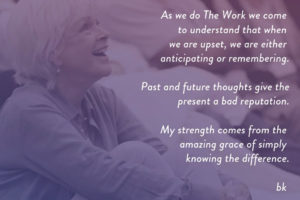Your self-worth lives inside of you, not inside others
Self-Worth; noun
Definition: a sense of one’s own value as a human being
We have developed a strange habit in our relationships – romantic or platonic. We place our self-worth into the hand of another, be it a partner, friend, boss, or family member. Suddenly we make them responsible for how worthy and loved we feel.
Like anyone else, I have experienced rejection and unworthiness – especially after relationship breakups. Only in my late 40s did I realise I needed to take responsibility for my own self-worth. I saw that my self-worth was not the responsibility of others but my own.
From an early age, we are conditioned to look at others to find out how worthy and loveable we are. But, as adults, we have the opportunity to overcome this habit and set ourselves free. Eventually, we can go beyond both– worthiness and unworthiness.
Romance & Self-Worth
Often without knowing it, we are saying to our partner something along the lines of:
I put my worthiness into your hands. You are now in charge of how loveable, desirable, attractive, and valuable I feel. I expect you to treat this responsibility with respect and that you prioritise me and my feelings. And if you don’t, I shall feel rejected, disappointed, abandoned, sad, angry, lonely, and ultimately unworthy – and it will be your fault.
Of course, we don’t say these words out loud – they are an unconscious attitude within our relationship. I believe our romantic relationships would be much easier if we did say them aloud.
Self-worth, dependency & co-dependency
If I place my self-worth in the hands of another, I enter a dependency. If I take on their self-worth in return, I enter a co-dependency. Again, without saying it out loud, we are entering a deal, and the conditions are something like this:
My worth and subsequent happiness depend on you. So, likewise, your happiness and worth should depend on me. You make me feel worthy and happy, and I shall give the same back to you. Deal?
Once I saw that dependency pattern, I didn’t know how to get out of it. I didn’t have a clue how to start. So, a few years would go by just observing the pattern and recognising the feeling of discomfort and pain it often created.
How do we move from dependency to more freedom?
There was work to be done, but it wasn’t about working on my partner or my relationship. Instead, I saw that the source of my unworthiness lived inside me. It had nothing to do with another person. Nothing. Not even if they disrespected, judged, or dumped me. This was an amazing discovery because it meant I didn’t rely on others to find my self-worth.
Shifting from unworthiness to worthiness
How do we start to shift from unworthiness to worthiness? I like to suggest a few questions you could contemplate. Ask yourself:
• Do my achievements, looks, finances, followers, awards, and successes determine my worth as a human being?
• Can outside love and approval heal my unworthiness?
• Are there worthy and unworthy people?
And the most important question:
• Does my worth really depend on the capacities and abilities of another person?
I came to see that another person is just like me. They have a certain capacity for love, openness, acceptance, kindness, honesty, and compassion. I no longer believe that their individual ability determines my worth.
Where to start?
Do you really want to go beyond your unworthiness pattern?
If your answer is no, that is ok. Dependency can give us a sense of security, familiarity, and belonging, even though this reliance can sometimes result in pain. If your answer is yes, then you have work to do. As far as I know, there is no quick fix or shortcut. Finding yourself and being fully at home in your own skin, imperfections, and all, is a process. It takes time, patience, dedication, and a whole lot of courage!
The first step in overcoming unworthiness
My invitation is that you start by observing your unworthiness pattern. Pay attention and become aware of how it functions and influences you. Notice your behaviour, thoughts, and emotional reactions.
- Notice when you place your self-worth into the hands of another person.
- Be aware when another places their worthiness into your hands.
- When your self-worth goes up or down, observe the reasons why.
- What are your innermost thoughts when you feel not good enough?
- What do you do when your unworthiness is triggered? How do you react? Do you cry, argue, plead, blame or get angry? Do you defend, attack, resent or retreat, or compensate?
- What addictions and escapes are activated when these feelings of unworthiness arise? Social Media, shopping, alcohol, food, blaming, or feeling sorry for yourself?
- When your self-worth is restored, ask yourself, what caused it? Outside circumstances? Other people?Be kind while you observe yourself. Take an attitude of curious interest. Start journaling and write down your insights.
Go deeper, and things will start to shift
How intense our sense of unworthiness is, depends on many things. Almost always, childhood plays a role. Our parents, family, teachers, and religious authorities have influenced the development of our self-worth. Looking back and understanding your past is often a big part of the healing.
Once you have a little bit of an understanding of how your unworthiness pattern works, you can start to go deeper, and things will begin to shift. Support yourself by connecting with like-minded people. Talking to people on the same path will support and encourage you. Without that friendly support, this journey can feel a bit lonely because most people disagree with what I have written here. Mainstream opinion makes us believe others owe us appreciation, love, loyalty, and respect. Our culture encourages us to remain superficial and dependent on continuous outside gratification rather than looking within.
Feeling the pain of unworthiness is challenging
Feeling unworthy, not enough, irrelevant, unimportant, or abandoned by someone you love is a very uncomfortable feeling. It is perceived as a rejection and can feel unbearable. But, remember you are not alone, be brave and face it. Running away doesn’t solve anything, it will only postpone the issue.
By facing it, I mean meeting the discomfort and being with it. Get comfortable in being uncomfortable. Turn inwards instead of looking outside of yourself. When my unworthiness is triggered, I invite myself to be still and feel that unworthiness. I don’t always succeed. The urge to escape can be overwhelming. When I do manage to be present with it, I experience turmoil, confusion and painful emotions. I encourage myself to observe, allow and breathe. And I write down what my minds and my emotions say. Seeing it in black and white makes it easier to understand and question my misguided beliefs. This ‘understanding’ is not an intellectual but a holistic process that allows a transformation to take place.
Your self-worth lives inside of you – not inside another
Discovering that you alone are responsible for your self-worth does not mean you are not supposed to enjoy others’ expressions of love and appreciation. It just means you don’t NEED it to feel good about yourself.
If they love who you are, fantastic.
If they don’t, wonderful.
Either way – you feel ok.
I still practice, and then I practice some more. It is a delicate and sometimes slow process. However, there are moments when I get a sense of freedom, a state in which neither worthiness nor unworthiness’ exist. Once you have had a glimpse of that, you are on your way home.
The most important question
I do like contemplating questions in the tradition of self-inquiry. I would like to recommend to you that you ask yourself:
Does my worth really depend on the capacity of other people?
Contact me
If you like support on your path, contact me so we can arrange a Discovery Call.
.
@2023, Sabine Brosche. All rights reserved.






